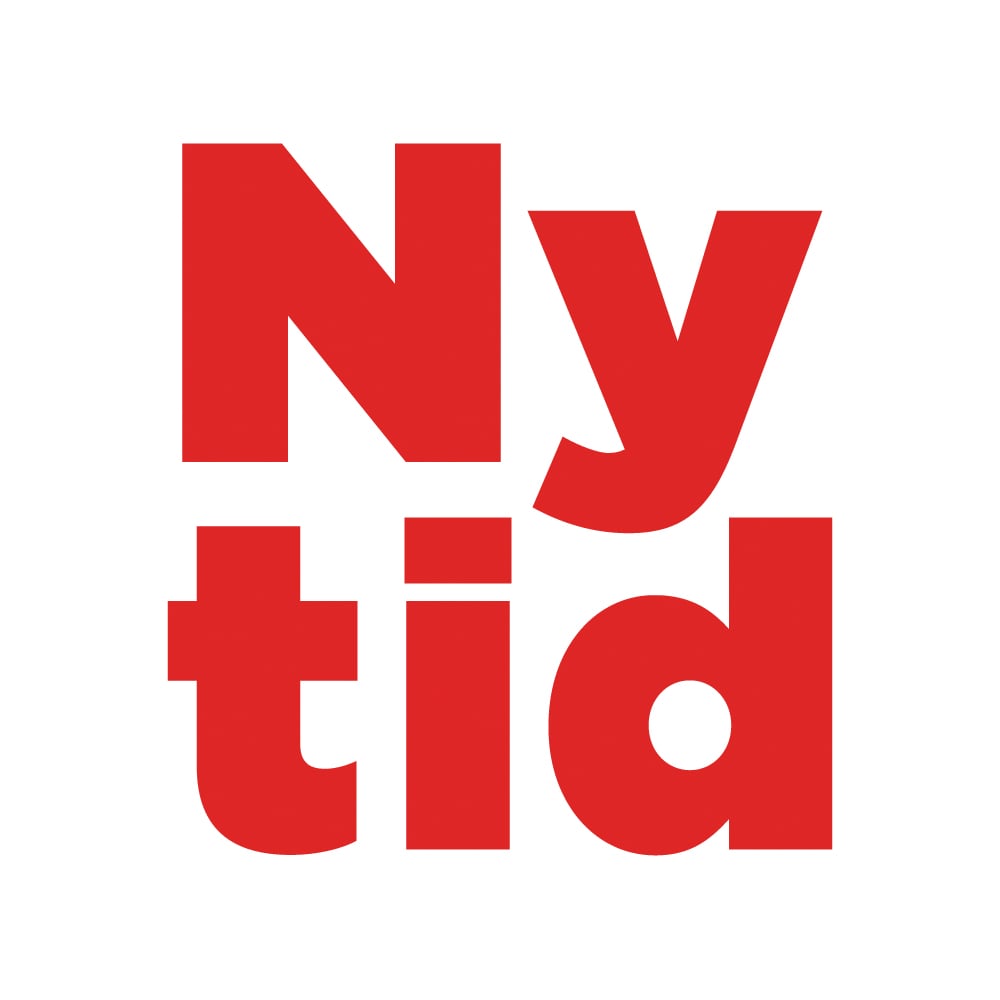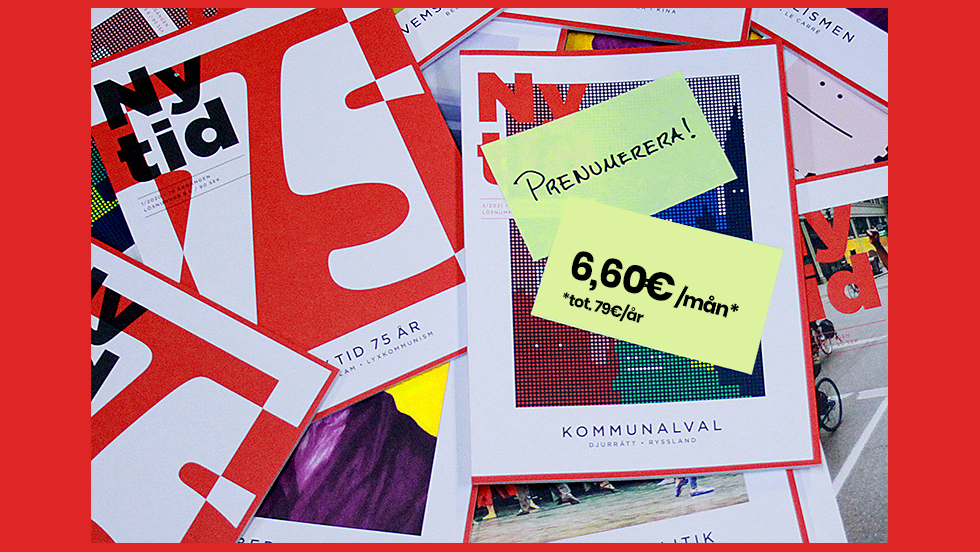Finland var det första landet som ville förmildra i sanktionerna mot Ryssland. Det var den första nyheten jag såg, redan innan det var klart hur sanktionerna egentligen skulle se ut.
Sämre kunde det inte bli. Den ryska eliten hann dra tillbaka mängder av pengar från väst. Visst, rubeln försvagades, temporärt, så som också den ryska aktiemarknaden. Men ironiskt nog kan de pengar som oligarkerna nu drar tillbaka från sina europeiska skatteparadis mycket väl leda till att den ryska ekonomin på sikt står starkare.
Att det är just Finland som ställer sig på tvären är förståeligt. De baltiska länderna, Tyskland och Finland är de EU-länder som är mest sårbara när Ryssland slår till med motsanktioner. Det är också Finland som har en lång tradition av, ja just det, finlandisering.
Problemet är att det är bra, om än kortsiktig, politik att ignorera internationell rätt och låta bli att ge sitt stöd till upproret mot oligarkerna i Ukraina. Avspänningslinjen spelas upp av några skarpa eller i alla fall slipade typer inom både opposition och regering. Om Väyrynen, Soini och Stubb delar en åsikt så bara måste det finnas något att tjäna på det. Vare sig det är personliga fördelar man hoppas på, i gammal god tradition, eller helt enkelt fler röster hos de finländare som tycker det är bättre att bortse från orättvisor än att riskera ekonomi och tillväxt, så finns det mycket att vinna på att Finland stöder ett styckat Ukraina.
Och så spjälker Finland den europeiska rösten, och vi står här splittrade. Sanktioner, ja, men svagare än USA:s. Vapenförsäljning och möjliga exportförbud förblir, i alla fall i skrivande stund, varje lands ensak. Importen av rysk gas, kol och kärnteknologi måste tydligen få fortsätta obegränsad. Och så har Putin tagit Krim, utan annat än symboliskt motstånd och sparken från G8-klubben.
En rysk expansionistisk retorik säger att Krim bara är början, ett första steg. Vissa vill fortsätta så långt som till Lissabon. Ryska fascister ser gärna en konfrontation med Ukraina, ett krig som antingen leder till ett ryskt Ukraina eller till ett delat och uppspjälkt Ukraina, där liberala och centerkrafter förlorat sin legitimitet. Hellre, säger de, ett antiryskt fascist-Ukraina än det nuvarande.
Jag trodde att tiden dragit förbi denhär sortens beväpnad politik i Europa. Men det verkar som att det som kunde förändra politiken, ett enat Europa, fortfarande består av nationer som stirrar på sina plånböcker, inte på det gemensamma intresset.
Så som vi marscherade mot Irakkriget måste vi tydligen marschera mot ett andra Krimkrig, mot ett expansionistiskt Ryssland. Inte bara för folkrättens skull. Ja, vi måste hålla oss till den, men för att en folkrätt skall vara effektiv och också andra hålla sig till den, så räcker inte det vi har idag. För att stå emot en ny imperialism måste Europa kunna ta ställning. Tyranner räknar i dag med att vi är splittrade och att vi är rädda om vår välfärd och vår tillväxt. Vi måste hitta ett sätt att visa att de har fel.
Marscherna mot Irakkriget utgör ett bra exempel. Andra möjliga referenspunkter finns. Visst, de internationella brigaderna i Spaniens inbördeskrig kämpade också sinsemellan. Det är att räkna med. Våra egna fascister skickar redan ut folk ”på träning i Ukrainas nationella revolution” och de återvänder med dragna knivar. Det hela känns dels löjeväckande, dels vansinnigt, men fascisterna gör mer rätt än vad jag egentligen skulle vilja medge. Det är vår svaghet att inte vi har folk på plats.
Markus Drake
bor i Bryssel, talar varken ryska
eller ukrainska, och hoppas att
situationen inte förändras allt för mycket innan kolumnen publiceras



2 kommentarer
I do notice that Markus Drake is angry with these Europeans who (as usual!) do not get any determined action together (and I can assure anybody that I have myself felt the same way more than once). In this case he wants to see action against ”tyranner” and ”ett expansionistiskt Ryssland”. He mentions ”internationell rätt” and ”folkrätt” as things to be defended and thinks that ”[f)ör att stå emot en ny imperialism måste Europa kunna ta ställning” and ”ge sitt stöd till upproret mot oligarkerna i Ukraina”. And it is pretty obvious that for him Russia is (in this case) THE ENEMY.
I could in this situation just refer to what was written in http://tigern.fi under the heading ”Ukraina”. But perhaps it is more adequate to try and give here a shorter and more precise answer:
(a) ”Internationell rätt” and ”folkrätt”. Does it stand up to any rätt that Chrusjtjov simply ”gave” the Krim to Ukraina in (I think) 1954? That president Janukovitj was simply chased out of office by a crowd which basically had no legal right to do so and by whose behaviour some might be tempted to think of terms like ”mob” and ”SA” (I do NOT use these terms now, but I am still waiting for some unbiased analysis what really was going on)? Were those demonstrators really representing ”the people”? – According to a brochure which Svenska Bildningsförbundet was handing out during an information session, Janukovitj had been elected with a clear majority in the Eastern and Southern parts of the Ukraina, while ”oppositionens starkaste fästen” was (according to the brochure) ONE district (out of 24, if I have counted correctly) in the far West of the country. Thus, should one IN FACT call Ukraina a split nation? Its legal government has been removed by illegal means. One of the first things the new government did was to cancel the status of Russian as one of the country’s official languages (only the hurried intervention by Western diplomats got the government to cancel this decision). Altogether, Ukraina is split into a Western and an Eastern part, the parts are similar in size, but for the moment the Western part has won (and seems in no mood to consider wishes of those in the Eastern part). And legality has anyway not been observed at any stage.
(b) To call the events an ”uppror mot oligarkerna” is perhaps an appeal to glorious episodes of European history, but if one looks who has VERY obviously the best chances in the upcoming presidential elections, you will find just an oligark. And let’s wait and see what comes from that … . Anyway Ukraina was quite officially up to now still more corrupt than even Russia. And from things which I have read it seems that this is the tradition of the country.
(c) As to that ”expansionistiskt Ryssland”. Hm, WHO is expansionistiskt? When Michail Gorbachov agreed to the re-unification of Germany he was assured that NATO would not expand ”an inch” beyond the eastern border of Germany. And where is NATO now? And as obediently as all those European states are following any wish of the USA, one can safely equal NATO with ”US empire”.
One may say that the US empire does not use military means for its expansion (at least not now and not in Europe), which is correct. It just uses advertisement to promise freedom and prosperity, and once it has convinced another nation and got it to join the West, it ties the nation down by debt and such conditions as the IMF is just now announcing to Ukraina, makes it dependent on Western providers of military equipment, supervises it via the NSA and sends ”advisers” in methods how to control the population – all this with the result that one can feel more free, while the prosperity is slow in coming and the nation is anyway trapped in the US empire. Thus, should we say that the Russian methods are more obvious and more brutal, but what Putin is doing at the moment is rather a last ditch defence against WESTERN expansionism.
Altogether, what one could wish for would be that Europe could begin to speak with an OWN voice (in contrast to all those speakers which Svenska bildningsforbundet had invited and who ALL were stressing that Europe and the USA should speak with ONE voice). And that Western Europe would then make a serious and long run effort to get Russia to join Europe on a basis of mutual trust (which at the moment is certainly not there).
[…] publicerad i Ny Tid 31 mars, […]